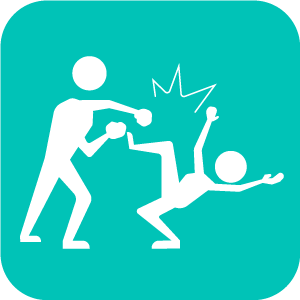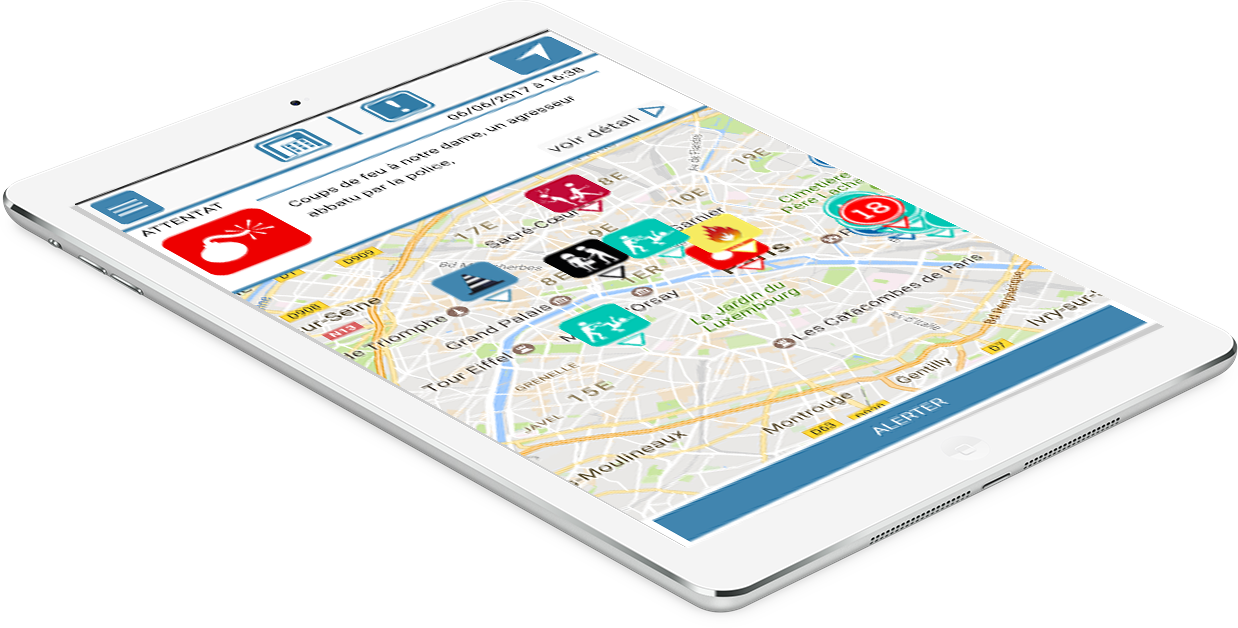As a foreigner, you are easy to spot and your lack of familiarity with the locations you visit increases your risk of an attack.
There are two types of attacks:
– An opportunistic attack. This is a random attack which depends on the contest and possibilities offered to the attacker. Excluding certain locations and areas, it is difficult to identify and prevent the context of this type of attack. They primarily take place amidst a surprise and it is the possibility and temptation given to the attacker which prevail. The attitude and behaviour of the person attacked can also be a trigger.
– Targeted attack: this is an attack which is prepared, premeditated and planned. Prior planning allows attackers to prepare their action by following and observing the potential victim, looking at their habits, schedule and daily movements.
How to avoid an attack and recognise an attacker:
– Pay close attention to your location in the street. Ideally walk along large well-lit streets at night.
– Avoid any large groups of people whose path you may cross.
– Ask yourself, when moving around, what is the most likely form of danger and the safest place of shelter.
– Make rational use of the place where you are located. Observe the possibilities for escape around you. If you are in a closed location, bar or restaurant for instance, locate the various exits. If you are in the street, avoid going into places where it would be easy to isolate you. Always be aware of any locations where you might be surprised along your route.
– Do not adopt any attitude or posture of a victim, do not avoid the glance of others and adopt a posture of self-confidence. The behaviour as a victim often leads to an attack.
– Avoid moving around with valuables and external signs of wealth.
– Be discrete when you take out money to make payment in shops with large denominations. Put your money in various pockets so as not to keep all of your money in one place.
In the event of an attack, the most natural reaction is to flee. In this instance, focus on the following:
– An area with a high concentration of people. The presence of a crowd around you may dissuade your attacker from following you and attacking you given the risks taken and potential witnesses.
– Seek refuge in an institutional building or secure place such as a police station, fire station, State building, commercial area with security agents, etc.
– If you are attacked at night, find a well-lit place and stay on large roads so as not to be isolated in a dark place which will only assist the attackers.
If you should be the victim of an attack, communication and dialogue with the attacker can help to reduce the tension and limit the aggression. If there is any discussion with your attacker:
– Try to control your fear as best as possible. If, during discussion, your attacker senses your fear, this can be used as a psychological advantage. Do not forget that your stress stops you from reasoning.
– Look at your attacker without staring him/her down. The fact that you look at your attacker should not be seen as defiance, nor should you be seen to avoid looking. Eye contact can appease tension.
– Try to exploit the weaknesses of your attacker by appreciating the relationship of strength between you and him/her and analysing the resources which the attacker has, the time of the attack and environment where you are.
– Try to work out the reason and motivation of your attacker. Why is s/he attacking you? What is the purpose? Try to initiate a discussion on these factors.
– If your attacker is armed, raise your hands and speak calmly. Explain each movement you make so as to meet his/her request. Avoid making any sudden movement.
– Do not shout. In the event of an attack, stress is contagious. Your attacker is also in an unusual situation and you must not try to second guess his/her reactions. By shouting, the attacker may lose control and this could give him/her an additional reason to attack you physically. An attacker may also be under the influence of drugs or alcohol which may make his/her reactions more unpredictable.
During an attack, if it is not possible to talk or flee, try to limit the time of the attack as much as possible:
– Do as the attacker asks. Your material and financial assets are worth nothing compared to your physical integrity.
– If your attacker begins to hit you, try as far as possible, to protect the vital parts of your body such as the head and neck. Try to flee and seek assistance from someone close by.
– During an attack, try not to fall to the floor, as this is the position where you are most vulnerable.
– In an isolated area, shout if nobody comes to your assistance.
– If you are on public transport, signal the alarm if your attacker is still in the carriage.
After an attack:
– If you can, do not remain on the site of the attack. Find a public place to take refuge.
– Call the police: dial 112 or visit the closest police station.
– Inform your local contact person in the country. This person can help you to appreciate the situation and allow you to try and move on from the incident. If you do not have any local contact person, you should notify your hotel.
– Notify your embassy, who will be able to offer you useful recommendations in line with the country where you are. If your administrative documents have been stolen, they can assist in having these re-issued.



